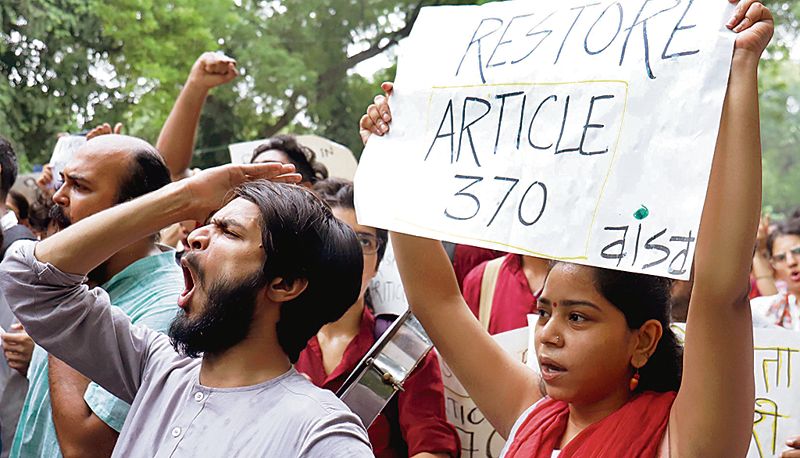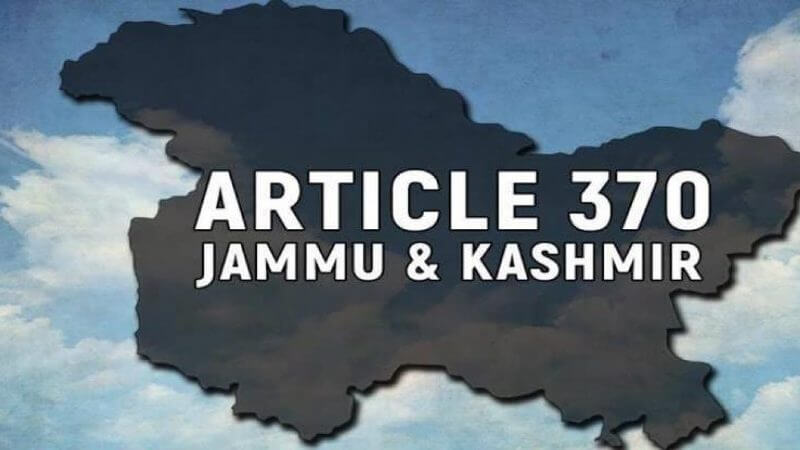Introduction
On December 11, 2023, the Supreme Court of India delivered a landmark verdict on the abrogation of Article 370, a controversial provision that granted special status to the state of Jammu and Kashmir. This decision has sparked widespread discussions and debates across the nation, with significant implications for the region and its people.
Background of Article 370

Article 370, incorporated into the Indian Constitution in 1949, aimed to address the unique historical and cultural context of Jammu and Kashmir. It granted the state its own constitution, flag, and autonomy over internal affairs, while partially applying the Indian Constitution. This provision was intended to respect the sentiments and aspirations of the Kashmiri people.
Abrogation of Article 370

In August 2019, the Indian government abrogated Article 370 and bifurcated the state into two Union Territories: Jammu and Kashmir, and Ladakh. This decision, met with both support and criticism, drastically altered the governance and administration of the region. The abrogation removed the special status of Jammu and Kashmir, bringing it under the full ambit of the Indian Constitution.
Supreme Court Verdict: Restoration and Elections
The recent Supreme Court verdict, while acknowledging the validity of the abrogation, has emphasized the need to restore normalcy and empower the people of Jammu and Kashmir. The court has directed the Central government to take necessary steps to restore the statehood of Jammu and Kashmir “as a precursor to holding assembly elections.” This crucial step aims to ensure effective governance, representation, and a sense of ownership for the region.
Significance of Restoring Statehood
Restoring statehood holds immense importance for the people of Jammu and Kashmir. It signifies a return to a system of representative government, enabling them to elect their own leaders and participate in the decision-making process. This empowers the local community, allowing them to address issues and chart a course for the future of their state.
Assembly Elections: A Path to Democracy
Conducting assembly elections by September 2024, as mandated by the Supreme Court, is a crucial step towards restoring democracy in Jammu and Kashmir. The elections will offer the people a voice in choosing their representatives, fostering a sense of ownership and participation in governance. The elected leaders will be responsible for addressing local concerns, shaping policies, and guiding the development of the region.
The Road Ahead: Challenges and Opportunities

The path towards restoring statehood and conducting elections involves several challenges. The government must work closely with various stakeholders, including local political parties and community leaders, to ensure a smooth transition and address potential concerns. This requires a delicate balance between respecting the directives of the Supreme Court, the aspirations of the people, and the need for security and stability.
Conclusion
The Supreme Court verdict on Article 370 marks a critical juncture for Jammu and Kashmir. The restoration of statehood and the upcoming elections offer a unique opportunity to empower the people, promote democratic values, and foster a sense of belonging and inclusivity. By prioritizing the welfare and aspirations of the Kashmiri community, India can navigate through this critical phase and guide Jammu and Kashmir towards a future marked by peace, stability, and development.
